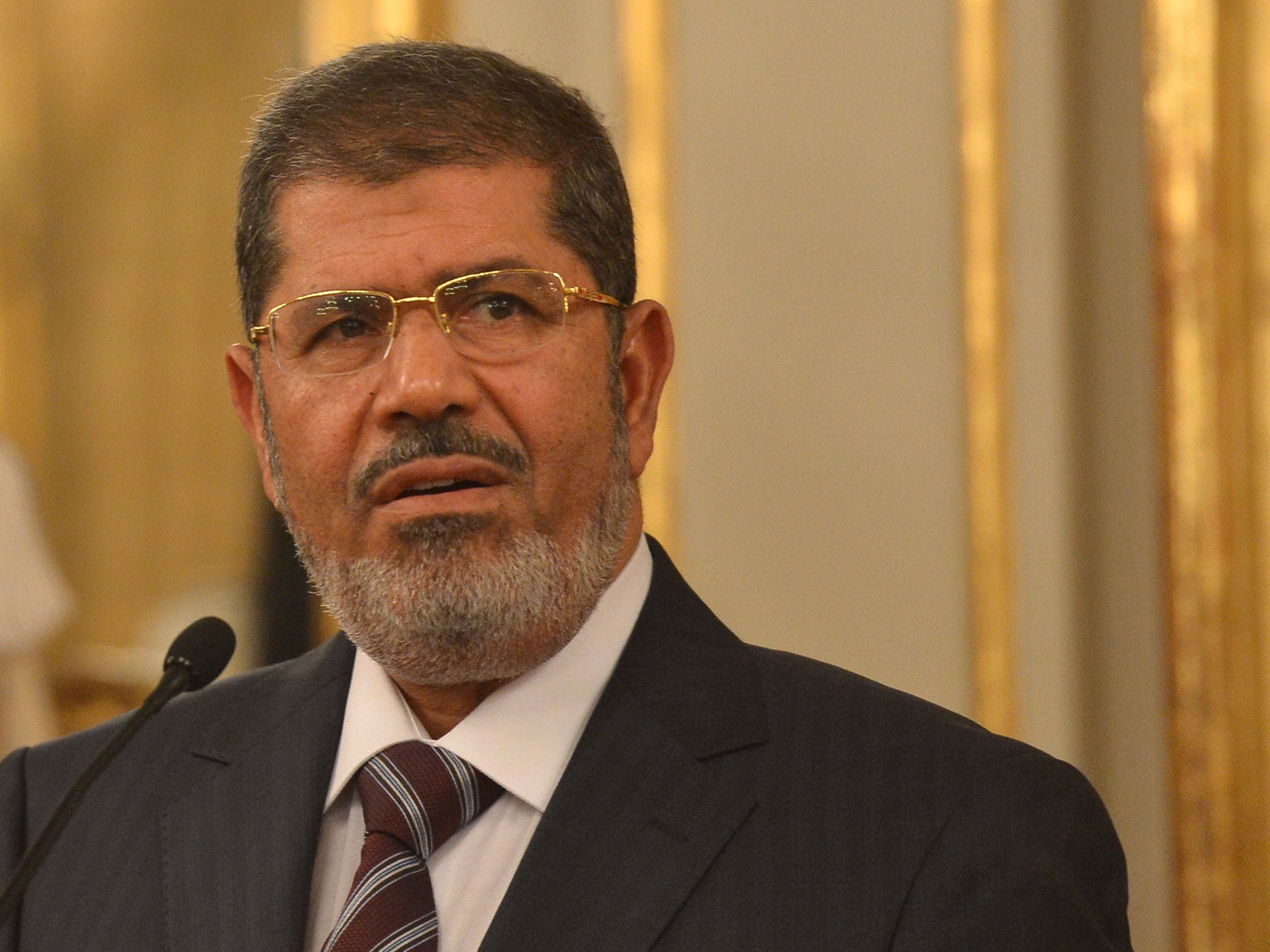Trial of former Egypt president Mohammed Morsi adjourned to 1 February after fog halts helicopter flight bringing him to court

The trial of Egypt's former Islamist president on charges of inciting murder was adjourned on Wednesday until next month, after bad weather prevented a helicopter flight from bringing Mohammed Morsi to court.
The helicopter, which was to fly Morsi from a prison near the Mediterranean city of Alexandria to the court in eastern Cairo, could not take off because of thick fog, according to Interior Minister Mohammed Ibrahim. Judge Ahmed Sabry Youssef adjourned the proceedings until 1 February.
Morsi and 14 other Muslim Brotherhood members face charges of inciting the killing of protesters outside a Cairo presidential palace in December 2012 — when he was still in office and when at least 10 people were killed and hundreds wounded. Wednesday's hearing was to be Morsi's second appearance in court since his ouster in a popularly-backed coup on July 3.
Seven of Morsi's co-defendants are being tried in the case in their absence, while the rest are being held at a Cairo jail.
It's one of three trials that Morsi faces. Charges in the other two cases have to do with Morsi's jailbreak in 2011 — during an uprising that ousted his predecessor, autocrat Hosni Mubarak — and allegations that he conspired with militant groups. Charges in all three carry the death penalty.
Since Morsi's ouster, his Brotherhood has been waging a campaign of street protests to demand his reinstatement. The military-backed government has meanwhile cracked down on the Brotherhood, arresting thousands, including the group's top and mid-level leaders. In August, security forces cleared two pro-Morsi sit-in camps in Cairo, killing hundreds.
Several dozen Morsi supporters clashed with security forces on Wednesday outside the court, a makeshift lecture hall at a Cairo police academy. The Interior Ministry, which is in charge of police, said 17 protesters were arrested. Another 15 pro-Morsi protesters were arrested in the nearby district of Nasr City, a stronghold of the Brotherhood, said Ibrahim, the minister.
Wednesday's adjournment came less than a week before Egyptians are scheduled to start voting in a nationwide referendum on a new constitution that, if adopted by a simple majority, will replace an Islamist-tilted one passed under Morsi. About 680,000 Egyptians living abroad started voting on the new charter on Wednesday.
Defense lawyers claimed the adjournment was linked to the Jan. 14-15 referendum on the new constitution and that the judge's decision was politically motivated.
"The decision was inspired by the political circumstances," said one of the lawyers, Osama el-Helou.
A comfortable "yes" majority in the referendum along with a significant turnout would give the military-backed government considerable legitimacy as it presses on with a roadmap for Egypt's transition, announced by military chief Gen. Abdel-Fattah el-Sissi the day he removed Morsi.
After the referendum, next in line are elections for a new parliament and a president, but no date has been set for either. There are growing signs that a presidential election will be held first, possibly as early as in the spring.
El-Sissi, whose popularity has soared since the coup, has not ruled out a presidential run.
AP
Join our commenting forum
Join thought-provoking conversations, follow other Independent readers and see their replies
Comments
Bookmark popover
Removed from bookmarks